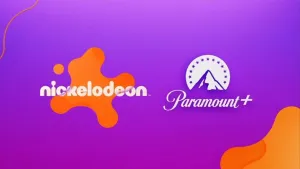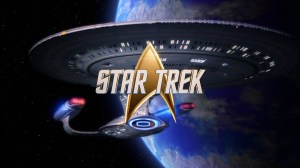For a generation, humanity has wondered about outer space. We’ve asked questions whether there are other livable worlds and whether we’re alone in the universe. Fiction has explored this notion more than once and found different answers, writer Jeff Loveness and artist Juan Doe are considering a new perspective in the AfterShock Comics series World Reader.
Videos by ComicBook.com
What if there was once life alien life in the universe, but now its all gone? Every world we reach one more planet of the dead? How much knowledge would have been lost?
That’s what Loveness and Doe are exploring in World Reader, which follows a woman named Sarah has the unique ability to commune with the dead worlds that litter the universe. But what happens when the world of the dead tries to commune back?
ComicBook.com spoke to Loveness via email about World Reader‘s big questions and the cosmic ghost story at its heart. Plus, there’s several preview pages of Doe’s art from World Reader #1 in the gallery below. The issue hits comic shops today.
Up Next: Aliens: Dead Orbit #1 Review
How would you describe World Reader to someone coming to it cold?
Jeff Loveness: It’s a sci-fi epic about a psychic astronaut who travels to extinct planets and talks to the ghosts of dead worlds about what killed their civilization. In the course of doing that, she stumbles across a murderous presence behind it all and she races to figure out the mystery of what’s killing the Universe… and if there’s a way to save Earth from being next.
It’s in the vein of 2001 and Solaris or a Ray Bradbury story. Big sci-fi ideas matched against a human story about overcoming your loneliness and doubt and leaning into your gifts.
Basically, an astronaut visits sad ghosts in space and things do not go well.
What can you say about the genesis of World Reader?
JL: I’ve always been fascinated with history and old civilizations, specifically the knowledge they possessed- and lost. The destruction of The Library of Alexandria and the House of Wisdom in Baghdad were such horrific tragedies. So much knowledge was lost that we’ll never be able to recover. And then I extrapolated that onto the concept of life on other planets. What if there was life on other planets…but we were just too late to find it? What if we missed out on our chance to truly connect with another world? We’ll never truly know who they were… but maybe there’s someone who could. That’s where Sarah and her abilities came in.
Sarah’s like an archeologist of life. She goes from world to world, experiencing the stories of beings long dead, feeling how they felt, seeing what led to the downfall of their world, and trying to learn from them.
But in the course of all this, she finds out she’s not the only person who can walk amongst the dead. And they might not have the same humanitarian pursuits she does.
What was the goal when developing the visual style for Sarah’s trips to the minds of the dead? What was Juan Doe‘s process like? What were some of the inspirations?
JL: When Sarah steps away from her physical form and enters the Ether – which is a plane of existence where the dead reside- I wanted it to seem hazy, almost like walking through the ocean of someone’s memories. You transcend language and just BECOME the other person. It’s a transference of essence. The purest form of conversation. It’s a tricky thing to visualize, but I think Juan nailed it. It’s a mix of pure connectivity but also a tremendous danger. If you lose your tether to the physical world, you can get dragged away in the current. It’s a dangerous place to go… especially when Sarah discovers that she’s being hunted through The Ether.
What can say about the mysterious, life-eating entity that Sarah encounters in the first issue?
JL: I love the types of villains who doggedly pursue heroes. Inspector Javert is probably the best example. The Nazgul. The T1000 from the Terminator series. They instantly bring dread. You can’t really fight them. You’ve just got to run.
In our story, The Faded Man prowls the Ether, hunting down and consuming any essence of life that remains, like a predator or a parasite. In a way, he’s consuming their stories. Erasing their memories. He is the personification of the destruction of The House of Wisdom or the Library of Alexandria. He’s extinguishing what remains of life on these worlds… and Sarah has to race against the clock to find out why he’s doing it, how to stop him… and how to save Earth from being next. And, like all my favorite villains, there’s more to him than meets the eye, and his story will run concurrently with Sarah’s as the story progresses. Maybe he’s chasing Sarah because he, himself, is running from something. Basically, I wanted to do Javert in space. I love Javert more than life. Please don’t tell Victor Hugo I ripped him off.

There seems to be a revitalized interest in space fiction, with the success of films like The Martian, Arrival, Interstellar, etc. What do you find captivating about this kind of fiction? Why do you believe it’s having this resurgence? Or has it ever really gone away? How is that reflected in World Reader?
JL: I think it ebbs and flows, like any genre. Space travel is a huge canvas for sci-fi, but it’s also a very real thing in our history and hopefully our future, so there’s a reality and ambition built within the genre and within us all. And there are bigger, more explosive sci-fis being made right now, but a couple years back, there were amazing, stripped-down sci-fis like Primer and Eternal Sunshine of the Spotless Mind and Her. Science fiction is an adaptable, spectacular genre that allows you to explore big ideas in any form. As long as you tether it to a human emotion, you can paint on as big a canvas as you want. And when you pair that with comics, there’s truly no limit to how visual and wild you can go.
And plus, we’re living in a very uncertain world where truth is hazy… so maybe we need and love big stories because big stories tell us the truth.
World Reader also seems to have elements of horror. Where is the balance between science fiction and horror for the series? What do you find interesting about blending the genres in World Reader?
JL: My main job is writing comedy for Jimmy Kimmel Live, so it’s been a tremendous, fun challenge writing in a completely different tone. We’re playing with a lot here. While Sarah’s experiencing the beauty and tragedy of life and death and personal, planetary apocalypse, she knows she can’t stay long in each place. She’s got to stay ahead of The Faded Man… but also… she needs to find out the deeper mystery and if Earth is in danger itself. I think that brings an interesting mix of wonder and tension to each issue. I’ve really enjoyed fusing genres together to make a new, chowder of a story. It could be a good chowder, or it could give everyone food poisoning and I’ll never be allowed to write again. Up to the readers, I guess.
World Reader is your first comic book work outside of mainstream superhero books. What’s that experience been like?
JL: Mike Marts and everyone at AfterShock has been great. I’ve been so happy with the freedom and trust. They let me pitch the biggest, weirdest story I could think of – and they went with it. I’ve really enjoyed jumping between the exciting Marvel work like Groot and Nova and my original work like this. That’s definitely a goal I’d like to focus on in the future. If there’s a world where I can write really fun Marvel stories about Cyclops being sad and then write my own original comics, while still doing TV comedy… there wouldn’t be much to complain about. I’m sure I’d find something, but it would be a journey.
Are there any last hints or teases you’d like to leave readers with that we haven’t already hit on?
JL: There’s a big twist near the end that I’m trying not to mention to anyone at all. But this book, at its core, is about the stories we tell. Every major culture has stories, and when you boil them down, they were all basically saying the same thing. Gilgamesh doesn’t want to die. Beowulf knows death is coming. Candide doesn’t even know what to live for. The more Sarah journeys into these worlds, the more she finds that we’re all the same… and maybe there’s a reason for that. Maybe there’s a reason we all feel so empty and alone, all the while wondering if anyone else is out there, feeling the same way.
Also, she’s been a ghost the whole time. Sorry. S*%t. That was the twist. And I just spoiled it. Ugh. I always do this. Sorry. But it’s a pretty original twist, right? I don’t think anyone’s done that one before.
World Reader #1 is on sale now.
More Comics: Atari’s Centipede Is Coming To Comics / IDW To Publish DuckTales, Tangled Comics / Everything Coming From Marvel In July








